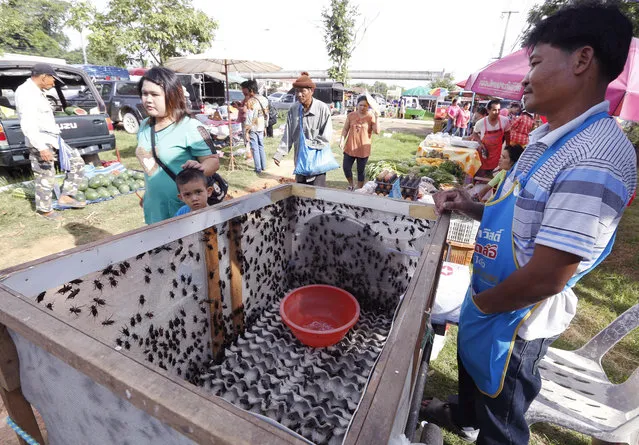
Thai edible insect farmer Udom Sanart, 44, (R) sells crickets, edible insects at a fresh market in Khonkaen province, northeast of Thailand, 08 July 2013. Insects have long been on the menu in Thailand, but academics and the United Nation's Food and Agriculture Organization (FAO) officials are hoping they will become a more common global source of protein and nutrients to meet the need for growing world food requirements in the future. In both Asia and Europe, edible insects have increasingly been used as ingredients in processed foods, removing the squeamish factor of directly eating the bugs, while in many Asian countries vendors sell the fried whole insects in markets to eager less-squeamish customers. Thailand's pioneering advances in commercial insect farming over the past 15 years has focused on three insect species seeing the annual production of crickets, palm weevils and bamboo caterpillars rise to an average of 7,500 tons of insects a year for domestic and export consumption. Insect farms are located in about sixteen northeast provinces of Thailand. The UN agency estimates that world food production will need to increase 60 per cent from current levels to meet global food requirements by 2050, and has become a keen advocate of insect consumption. Not only does this type of farming have less impact on the environment than many other meat source farming, the insects are also very high in protein, vitamins and minerals necessary for a good diet. (Photo by Narong Sangnak/EPA)
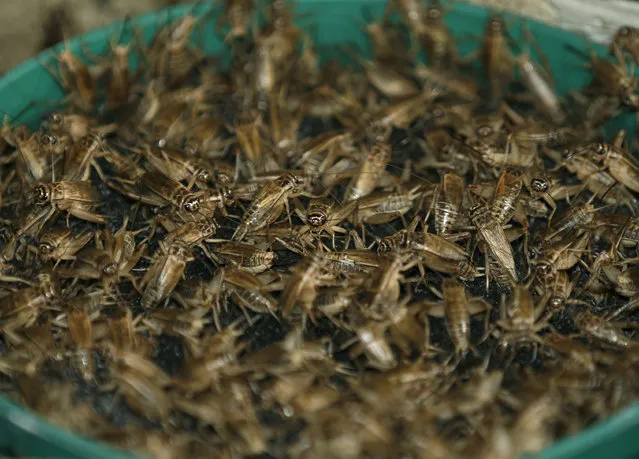
Crickets as spawning at an insects farm in Mahasarakam province, northeast of Thailand, 08 July 2013. Insects have long been on the menu in Thailand, but academics and the United Nation's Food and Agriculture Organization (FAO) officials are hoping they will become a more common global source of protein and nutrients to meet the need for growing world food requirements in the future. (Photo by Narong Sangnak/EPA)
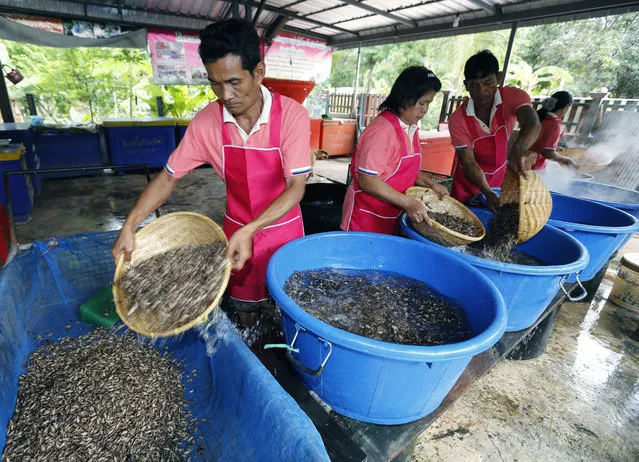
Thai villagers cleaning crickets with water at the cricket community enterprise center in Mahasarakam province, northeast of Thailand, 08 July 2013. (Photo by Narong Sangnak/EPA)
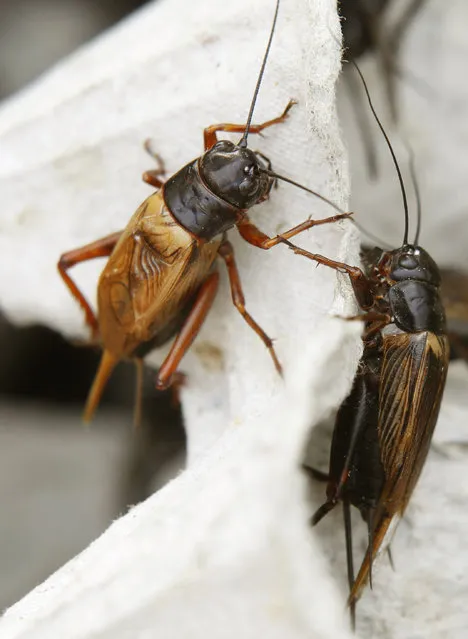
Two crickets, edible insects, sit in a cage for sale at a fresh market in Khonkaen province, northeast of Thailand, 08 July 2013. (Photo by Narong Sangnak/EPA)
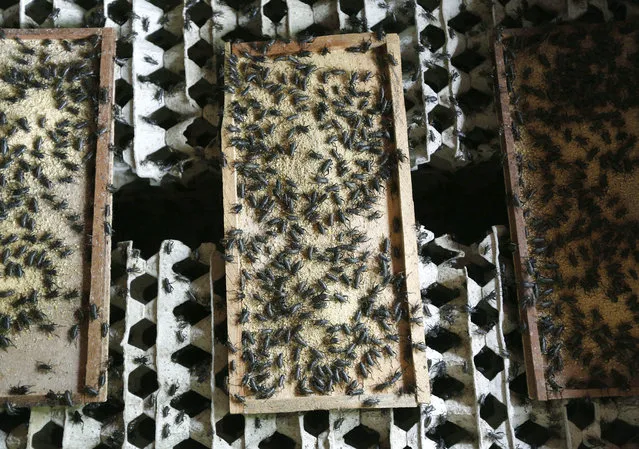
Crickets are being fed at an insects farm in Mahasarakam province, northeast of Thailand, 08 July 2013. (Photo by Narong Sangnak/EPA)
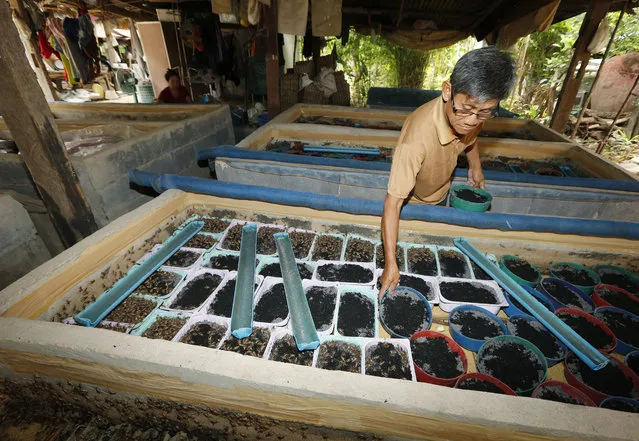
Thai edible insect farmer Udom Ploykanha, 58, place the container for crickets spawning as part of insects farming process, at his farm in Mahasarakam province, northeast of Thailand, 08 July 2013. (Photo by Narong Sangnak/EPA)

Thai edible insect farmer Udom Sanart, 44, collects crickets for sale at his farm in Khonkaen province, northeast of Thailand, 09 July 2013. (Photo by Narong Sangnak/EPA)

A Thai local villager cooks crickets in oil at her home in Khonkaen province, northeast of Thailand, 09 July 2013. (Photo by Narong Sangnak/EPA)
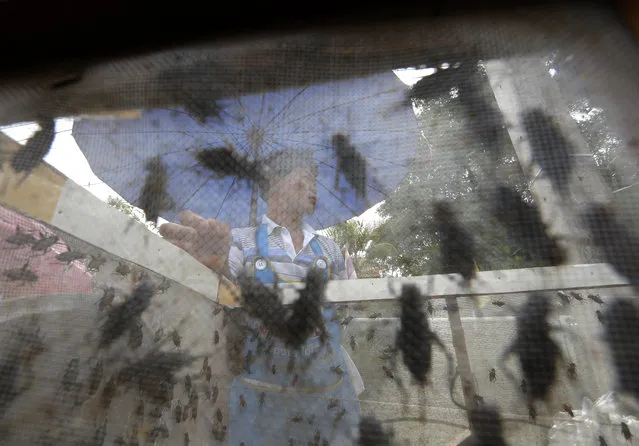
Thai edible insect farmer Udom Sanart, 44, sells crickets, edible insects at a fresh market in Khonkaen province, northeast of Thailand, 08 July 2013. (Photo by Narong Sangnak/EPA)
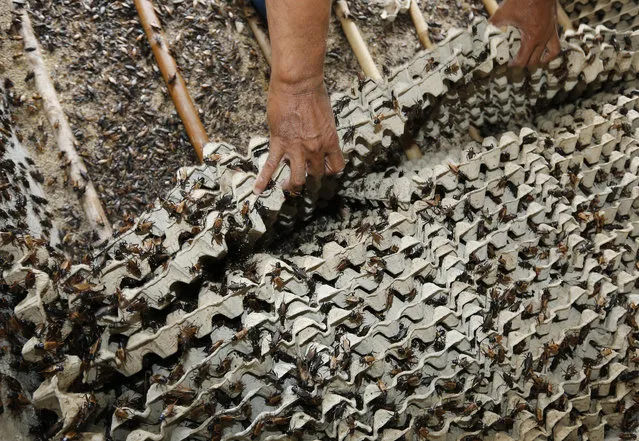
Thai edible insect farmer Udom Sanart, 44, collects crickets for sale at his farm in Khonkaen province, northeast of Thailand, 09 July 2013. (Photo by Narong Sangnak/EPA)
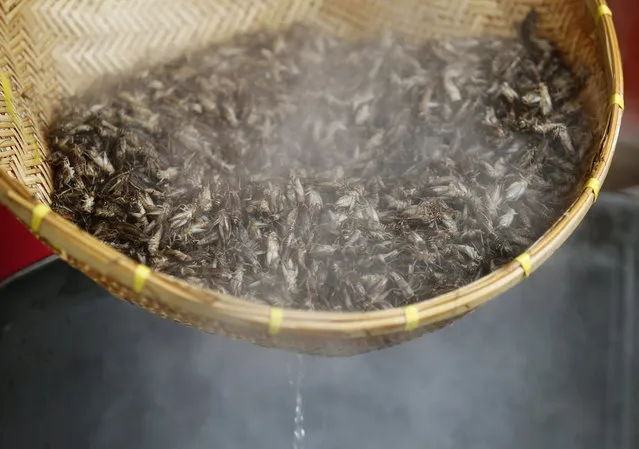
View at crickets in a basket after ripen in boiling water as part of process for sale at the cricket community enterprise center in Mahasarakam province, northeast of Thailand, 08 July 2013. (Photo by Narong Sangnak/EPA)
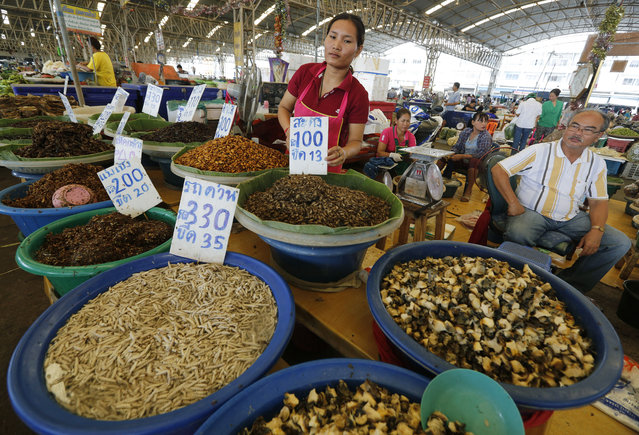
Thai vendors stand next to edible insects for sale at Talad Thai market in Pathum Thani province on the outskirts of Bangkok, Thailand, 15 July 2013. (Photo by Narong Sangnak/EPA)
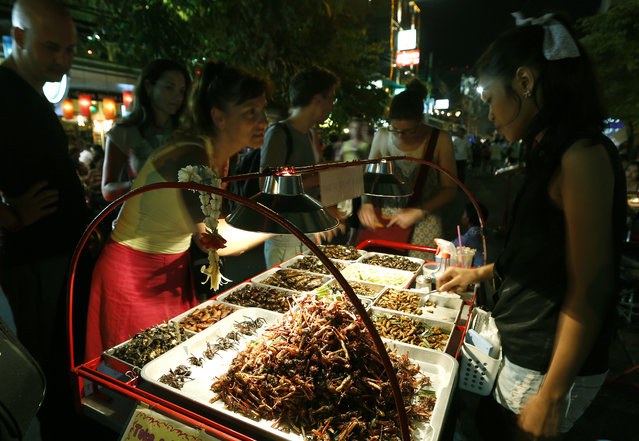
Foreign tourists buy fried insects from a Thai vendor at Khao Sarn road, a spot tourist area in Bangkok, Thailand, 20 July 2013. (Photo by Narong Sangnak/EPA)
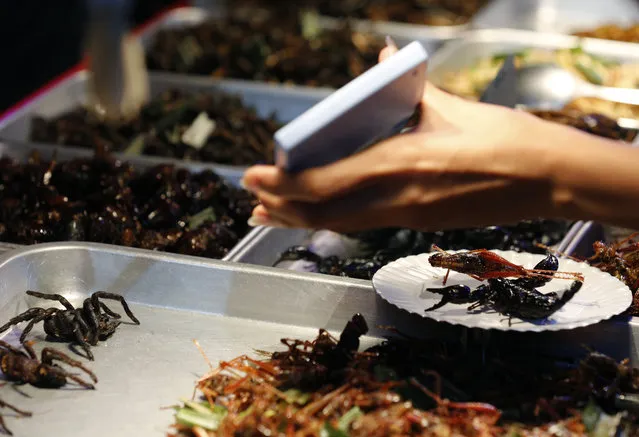
A Thai vendor shows fried insects prices to tourists with a calculator at Khao Sarn road, a spot tourist area in Bangkok, Thailand, 20 July 2013. (Photo by Narong Sangnak/EPA)
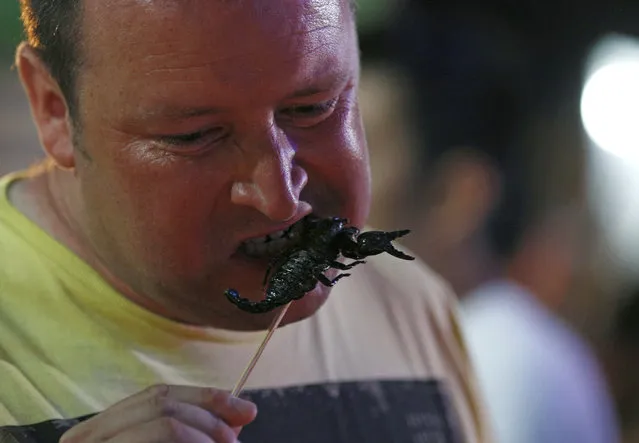
A foreign tourist eats a fried scorpion insect at Khao Sarn road, a spot tourist area in Bangkok, Thailand, 20 July 2013. (Photo by Narong Sangnak/EPA)
22 May 2014 08:51:00,
post received
0 comments
